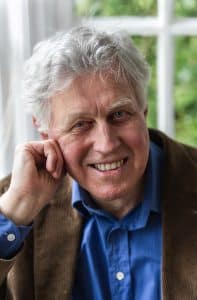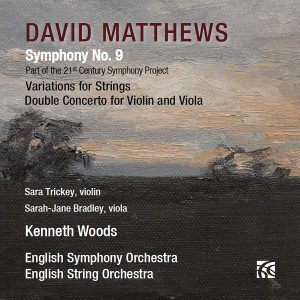 David Matthews was born in London in 1943 and started composing at the age of sixteen. He read Classics at the University of Nottingham – where he has more recently been made an Honorary Doctor of Music – and afterwards studied composition privately with Anthony Milner. He was also helped by the advice and encouragement of Nicholas Maw and spent three years as an assistant to Benjamin Britten in the late 1960s. He has largely avoided teaching, but has undertaken editorial work to support his composing career, collaborating with Deryck Cooke on the performing version of Mahler’s Tenth Symphony and orchestrating film music. He has written books on the music of Tippett and Britten, published a lecture on the relation of music to painting and penned numerous reviews for music journals. Matthews is Music Advisor to the English Chamber Orchestra and was Artistic Director of the Deal Festival for 13 years.
David Matthews was born in London in 1943 and started composing at the age of sixteen. He read Classics at the University of Nottingham – where he has more recently been made an Honorary Doctor of Music – and afterwards studied composition privately with Anthony Milner. He was also helped by the advice and encouragement of Nicholas Maw and spent three years as an assistant to Benjamin Britten in the late 1960s. He has largely avoided teaching, but has undertaken editorial work to support his composing career, collaborating with Deryck Cooke on the performing version of Mahler’s Tenth Symphony and orchestrating film music. He has written books on the music of Tippett and Britten, published a lecture on the relation of music to painting and penned numerous reviews for music journals. Matthews is Music Advisor to the English Chamber Orchestra and was Artistic Director of the Deal Festival for 13 years.
On the one hand Matthews’ musical language grew out of his English background and his special concern for the music of Tippett, Britten and Maw, but it is also strongly connected to the central European tradition – back through Mahler to Beethoven. He has been preoccupied with working in the great inherited forms of the past – symphony, string quartet, and lately oratorio – and finding new ways of renewing them. Recordings of his symphonic output have attracted many appreciative reviews with Matthews being dubbed ‘among our most prodigious symphonists’ (The Sunday Times, Paul Driver) and ‘a leading 21st Century exponent of the form’ (Gramophone, Arnold Whittall). In 2011, the Dutton recording of his Second and Sixth Symphonies received a prestigious BBC Music Magazine Award. The symphonic poems In the Dark Time and Chaconne have been recorded by the BBC Symphony Orchestra on NMC. Matthews has also written prodigiously for string quartet. His dramatic scena, Cantiga, for soprano and orchestra, premiered at the 1988 Proms whilst Concerto in Azzurro (a cello concerto for Steven Isserlis and the BBC National Orchestra of Wales under Richard Hickox) was nominated for a BBC Radio 3 Listeners’ Award in 2003.
Matthews’ 70th birthday in 2013 was marked by a Nash Ensemble portrait concert at the Wigmore Hall, a major new symphonic poem, A Vision of the Sea, premiered at the Proms by the BBC Philharmonic, and a new Double Concerto for violin, viola and strings co-commissioned by the Presteigne and Cheltenham Festivals. His anthem To what God shall we chant our songs of battle? was broadcast live on BBC Television as part of a vigil at Westminster Abbey commemorating the outbreak of the First World War. He was Composer in Residence at the 2015 Lichfield Festival.
Highlights of Matthews’ tenure as John McCabe Composer-in-Association of the English Symphony Orchestra include a performance of his orchestration of the Elgar String Quartet at the inaugural Elgar Festival, the world premiere of his 9th Symphony in St George’s as the second work in the ESO’s 21st Century Symphony Project, and recordings of his Double Concerto for Violin and Viola and Variations for Strings. The ESO also made the world-premiere recording of Matthews’ Romanza for Violin and Strings with soloist Harriet Mackenzie. That Nimbus recording, An Eventful Morning in East London, was given a five-star review in The Times and chosen as a 2017 MusicWeb International Recording of the Year.

